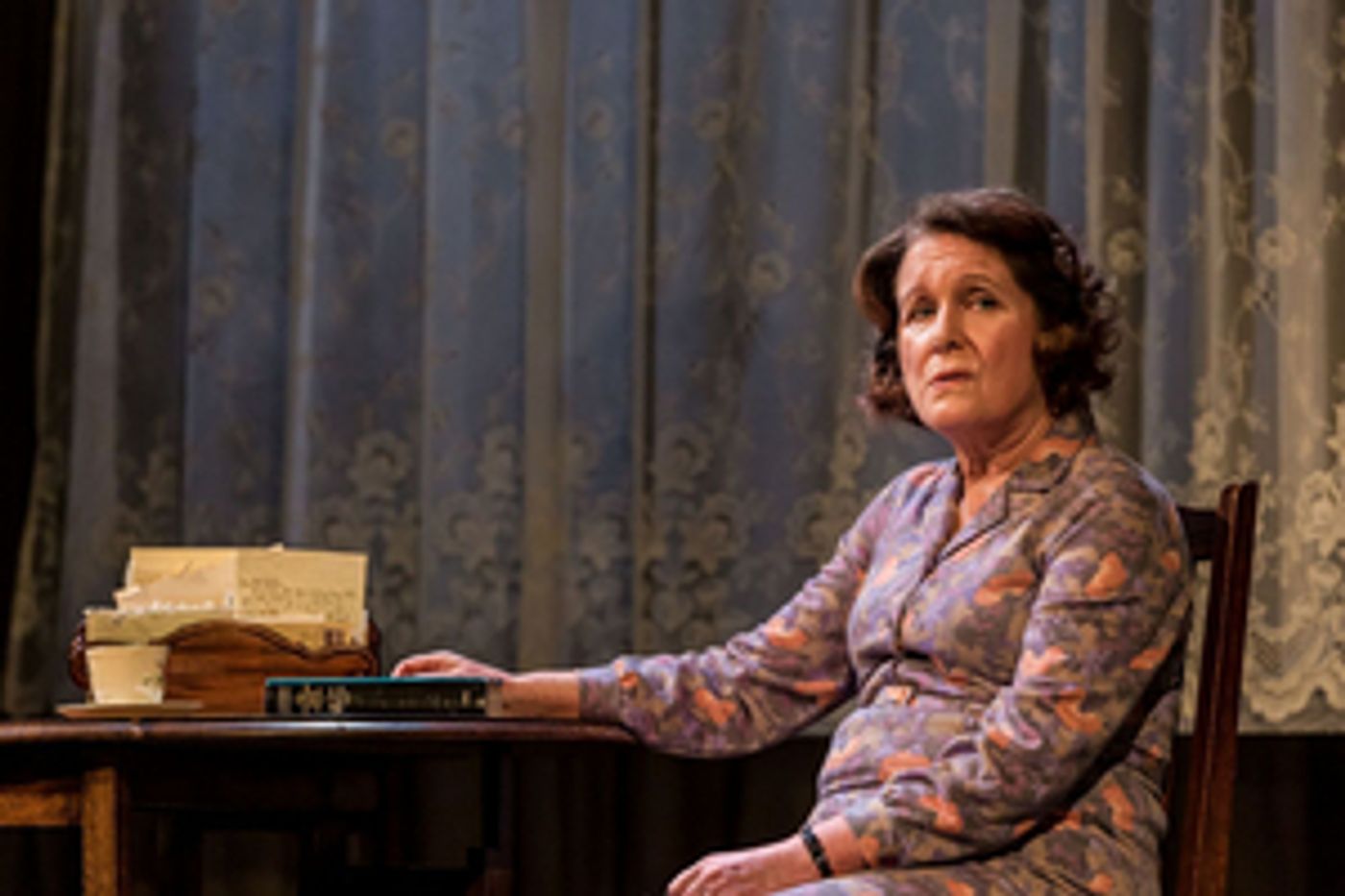Review: TALKING HEADS, Watford Palace Theatre

![]() Things were different in the 1980s. Before Diana on Panorama or Oprah on daytime, cameras seldom got so up close and personal with their subjects and the confessional was still for the priest, not the audience of millions.
Things were different in the 1980s. Before Diana on Panorama or Oprah on daytime, cameras seldom got so up close and personal with their subjects and the confessional was still for the priest, not the audience of millions.
Alan Bennett's Talking Heads (first screened in 1988) was "event television" before we knew that "event television" was a thing - the intimacy, the rawness, the connection lifted it beyond scheduled fare even in such glorious days of drama on TV. The challenge for any staged version of these celebrated scripts is to capture that one-to-oneness in an auditorium, without the actors veering towards emotional incontinence or the audience feeling the need to check their phones, as attention on a single subject ebbs.
Director, Brigid Larmour, has wisely gone for three monologues with an interval after the second. On the night I saw the show, the house was somewhat sparse too, no doubt impacted by people's reluctance to venture too far in these most uncertain of days. The critical sense of the actor talking to us almost individually was established early and sustained.
Jan Ravens is up first with the tale of a lonely spinster who seizes the wrong end of many sticks, writes letters and ultimately runs foul of the law. Incarcerated physically, but not psychologically, she finds the companionship she craves.
We know a lot more these days about mental health so it's interesting to see just how perspicacious Bennett was in identifying the vulnerability of a woman whose outward manifestation of inner turmoil was little more than an eccentric obsession with firing off missives to the press and the authorities. I wondered about social media's unleashing of today's "letter writers" and whether the platform so provided feeds (at best) unhappiness or at worse, something akin to psychosis.
Julia Watson is up next as a vicar's wife who doesn't believe in God or in her husband and finds solace in the bottle and a tryst with an Indian shopkeeper. This is a more conventional tale of a mismatched marriage, an insensitive and boorish husband, and the prison of middle class values. Perhaps the interracial element had more resonance back in the 80s, but it carries little dramatic weight today and the piece feels slight after the first one.
Ravens is back for the third section, the tale of a wife and mother appallingly badly served by her late husband and son. There's a lot of stiff upper lip and stoic bearing of the indignities attendant on too much blind love, but there's a hard edge too in the emerging story of her daughter's illness.
Both actresses get the voices, the mannerisms and (and this is so important) the Northern rhythms of Bennett's writing just right, without me ever thinking that they were impersonating the incomparable Dames, Patricia Routledge and Maggie Smith who owned the original versions of the first two plays. And it's always a delight to hear anything written by (not Sir) Alan Bennett spoken with such skill and empathy.
If it's a little dated, a little "safe", a little aligned to the canon of 20th century English Literature (it's on the curriculum these days), it's still a pleasure, with just enough teeth to crunch any comfort away when Yorkshire warmth threatens to wash away the underlying traumas.
Talking Heads is at the Watford Palace Theatre until 29 March.
Photo The Other Richard
Reader Reviews
Videos

